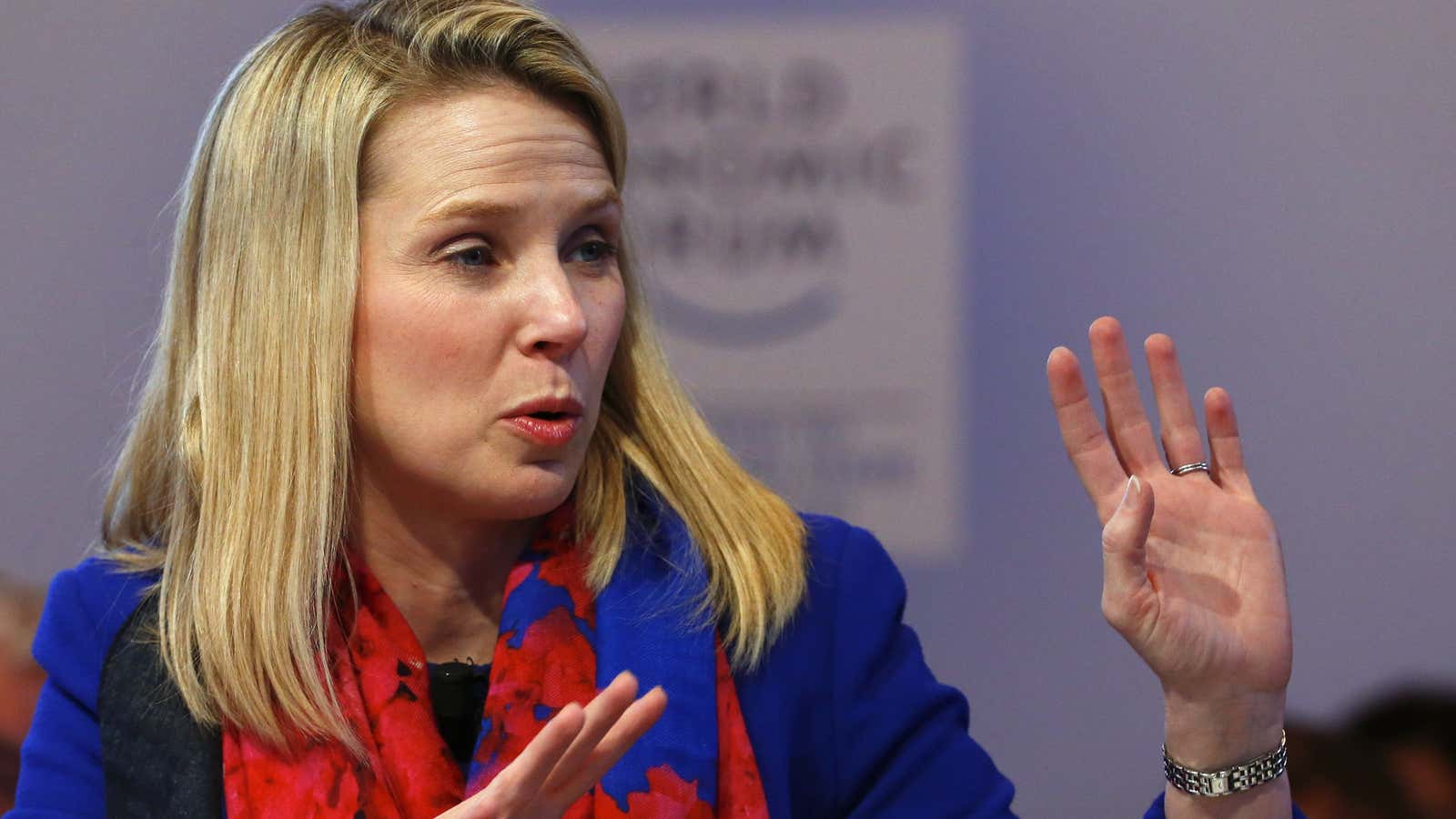The tone of discourse about the internet shifted disorientingly from session to session in Davos this week.
There were the quasi-utopian tech industry executives who see the internet as—more or less literally—the solution to all of humankind’s woes. Among them, Google executive chairman Eric Schmidt is a leading voice.
“Almost all of the problems we debate can be solved with more broadband access,” he declared from the World Economic Forum stage on Thursday evening.
Then there are the government officials and business leaders concerned about the problems that have accompanied internet access, including a loss of individual privacy and security. French president François Hollande focused on the latter during his address today.
“I’m talking about the internet, which terrorism is using as a weapon of indoctrination, a weapon of manipulation, a weapon of confusion,” he said, before calling on technology companies “to do their part to identify illegal content, make it inaccessible, and establish clear rules.
“Because you are also stakeholders in the process of regulation,” Hollande declared.
And that’s where a principal reason for the disconnect in rhetoric becomes clear. The tech companies are pitching visions of the internet’s great contribution to human progress in part to indirectly market their own broadband offerings and online services, and as a way to lobby for more influence and better treatment.
But they’re also trying to head off government regulations that could restrict their ability to use individual consumers’ data, or require closer supervision and censorship of the content the internet companies are hosting. They’re also wary of giving governments broadly expanded access to user data, something that European police and intelligence forces are more likely to demand following the Charlie Hebdo attack.
These concerns surfaced explicitly at moments in Davos this week. European Union digital commissioner Günther Oettinger spoke of the need for regulation and joint public-private efforts around consumer privacy.
Appearing on the same stage, Yahoo CEO Marissa Mayer countered that she preferred the idea of ”the ‘beneficent marketplace’ where you basically make a tradeoff round who you trust, how they handle your data, probably monetize data yourself.” She added, “I think that type of market-based force is likely to get us to a better, more forward-leaning solution that comes up with advantages to end users more quickly.”
If Google is any example, the tech companies have reason for concern. The European parliament last year voted for regulators to consider requiring the breakup of the search company on monopoly grounds.
